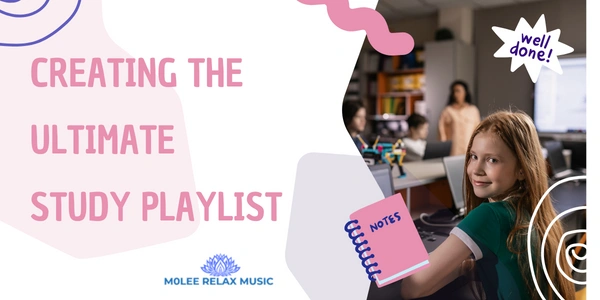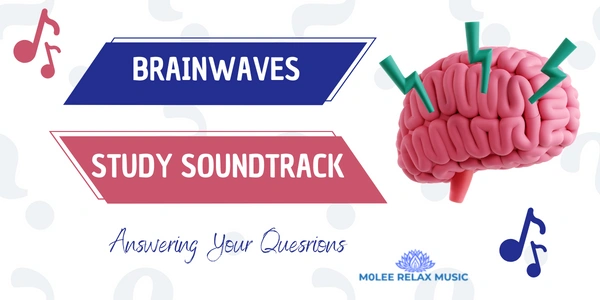Table of Contents
- The Connection Between Studying and Music
- Exploring 7 Best Study Music Genres
- Creating the Ultimate Study Playlist
- Top Music Artists for Students to Focus On High Grades in Their Exams
- Brainwaves and the Study Soundtrack
- Where to Find Study Music Genres
- How to Use Music to Help You Study
- Final Thoughts
- FAQs on Study Music Genres
- What is study music called?
- How do I learn study music genres?
- What is the best music for focus and study?
- What music should I listen to while studying math?
- Is traditional music a genre?
- What type of music is better for studying?
- When did music genres start?
- What is the difference between genre and style in music?
- Why are music genres important?
- Does listening to study music actually work?’
Have you ever wondered how music can enhance your study sessions?
Imagine the perfect soundtrack accompanying your academic pursuits, helping you maintain focus, boost productivity, and transform your study routine into an engaging experience. In this article, we’ll delve into the world of study music genres and help you find the perfect musical companion for your study sessions.
Now, let’s move on to the next section, “The Connection Between Studying and Music,” and I’ll ensure to incorporate the keyword “studying and music” as instructed.
The Connection Between Studying and Music
In the quest for optimal productivity during study sessions, many have discovered the remarkable synergy between studying and music. It’s not just a matter of personal preference; there’s science behind this phenomenon.
Let’s explore how music can transform your study sessions and enhance your focus and productivity.
The positive impact of music on studying is multifaceted. It can act as a powerful tool to:
Boost Concentration: Music creates a barrier against distractions, allowing you to immerse yourself fully in your studies.
Improve Mood: The right music can elevate your mood, making your study sessions more enjoyable and less stressful.
Enhance Memory: Certain music can help with memory retention, making it easier to recall information during exams.
Encourage Consistency: Establishing a study routine with music can foster consistency in your learning habits.
We’ll delve deeper into how music can positively influence your study sessions. But first, let’s explore the concept of finding the best music to study in the next section.
Exploring 7 Best Study Music Genres

When it comes to the best music for studying, there’s no one-size-fits-all answer. Musical preferences can vary widely from person to person, and what works for one student might not be ideal for another.
However, there are several types of music that have been found to be particularly effective for studying. Let’s explore these genres, each offering a unique ambiance to enhance your study sessions.
1. Classical Harmony
Classical music, known for its soothing melodies and lack of lyrics, is a timeless choice for studying. It often provides a calming backdrop that can improve focus and concentration, making it an excellent choice for tasks that require deep thinking and analysis.
This timeless genre boasts an extensive repertoire of instrumental compositions, from the soothing melodies of Debussy to the dramatic symphonies of Beethoven. Classical music is renowned for its ability to transport listeners to a world of tranquility, making it ideal for deep focus and concentration during your study sessions.
2. Timed Tempos for Productivity
Some students find that music with a steady tempo, such as instrumental tracks with consistent beats, helps maintain a rhythm while studying. This can be especially useful for tasks that involve repetitive actions, like solving math problems or writing essays.
Music with consistent beats and rhythmic patterns can synchronize with your brain’s natural rhythms, enhancing productivity and focus. Whether it’s electronic, instrumental rock, or even some genres of pop, timed tempos provide a steady backdrop for your intellectual endeavors.
3. Instrumental Ambient Sounds for Tranquility
Ambient music combines gentle melodies with calming sounds from nature or synthetic elements. It creates a serene environment that can reduce stress and anxiety, making it ideal for relaxation while studying.
Imagine being surrounded by a serene soundscape where nature’s whispers and soft instrumentals blend seamlessly. Ambient music creates an atmosphere of calm, reducing stress and anxiety. It’s a gentle companion for prolonged study sessions.
4. Nature Sounds for a Refreshing Atmosphere
The soothing sounds of nature, like flowing water, birdsong, or rustling leaves, can transport you to a peaceful outdoor setting. These sounds can help create a refreshing atmosphere for your study space, fostering a tranquil learning environment.
5. Modern Electronic Beats for Focus
If you’re looking for a contemporary twist, modern electronic music with its energetic beats can provide the right amount of motivation and focus to power through your study tasks.
6. Jazz for a Relaxed Study Session
Jazz music, with its improvisational and often mellow tones, can be a pleasant background for studying, particularly when you need a relaxed atmosphere to work in.
7. Rhythmic RnB Vibes
Rhythm and Blues, with its soulful tunes and rhythm, can add a touch of emotion and groove to your study sessions, making them more engaging.
8. Embracing Simplicity with Lo-Fi Beats
Lo-fi, short for “low fidelity,” captures the essence of simplicity. Its mellow beats, often accompanied by ambient sounds, create a cozy atmosphere for studying. Many students appreciate its unobtrusive quality, allowing them to concentrate with ease.
Read our detailed article on how to use Lo-Fi beats to improve your focus in study sessions.
By exploring these study music genres, you can tailor your soundtrack to suit your specific study needs and preferences.
Now, let’s move on to the next section, “Creating the Ultimate Study Playlist,” where we’ll provide tips on curating a personalized playlist that matches your musical tastes.
Creating the Ultimate Study Playlist
Now that you’re familiar with various study music genres, it’s time to curate the ultimate study playlist that resonates with your unique style of learning. Crafting the perfect playlist can elevate your study sessions to new heights of productivity and enjoyment.

Creating a study playlist is a personal endeavor, and it begins with understanding your preferences. Here are some tips to help you craft a playlist that syncs seamlessly with your study routine:
1. Know Your Tempo: Consider the pace of your tasks. If you’re tackling complex problems, opt for music with a slow tempo. For more dynamic activities, faster beats can help keep you engaged.
2. Lyrics or No Lyrics: Decide whether you work better with or without lyrics. Some students find that instrumental tracks eliminate the distraction of words, while others draw inspiration from lyrical content.
3. Duration Matters: Ensure your playlist is long enough to cover your study session. Longer playlists reduce the need for interruptions to change songs.
4. Experiment and Refine: Don’t be afraid to experiment with different genres and artists. Over time, you’ll discover what resonates most with your study style.
Top Music Artists for Students to Focus On High Grades in Their Exams
Let’s delve into some popular artists whose music has proven to be a hit among students aiming for high GPAs. These artists offer a mix of study music genres and moods to suit various study preferences.
Taylor Swift
Taylor Swift’s extensive catalog offers a variety of emotions and tempos, making it adaptable to different study scenarios. Her music has a universal appeal.
Tyler
Tyler, the Creator’s eclectic blend of hip-hop and alternative rap can provide a unique backdrop for your study sessions. His tracks offer an interesting twist to your playlist.
Rihanna
Rihanna’s diverse discography, from pop to R&B, offers a range of musical options. Her soothing melodies can create a pleasant study atmosphere.
Kendrick Lamar
Kendrick Lamar’s thought-provoking lyrics and rhythmic beats can be inspiring while studying. His music often strikes a balance between focus and creativity.
Fleetwood Mac
Fleetwood Mac’s timeless classics offer a sense of nostalgia and tranquility. Ideal for creating a soothing study environment.
Post Malone
Post Malone‘s melodic rap and hip-hop tracks can provide a laid-back atmosphere for your study sessions. Great for unwinding while learning.
Ariana Grande
Ariana Grande‘s powerful vocals and catchy tunes can add an energetic touch to your study playlist. Perfect for staying motivated during challenging tasks.
Harry Styles
Harry Styles‘ soothing solo work combines pop and rock elements, making it an excellent addition for those seeking a relaxed yet upbeat vibe.
SZA
SZA‘s soulful R&B tunes can add a touch of elegance to your study playlist. Her music is known for its calming effect.
The Weeknd
The Weeknd‘s atmospheric R&B and pop can transport you to a different world. Ideal for creating a captivating study atmosphere.
By personalizing your study playlist with these artists and considering your own preferences, you can create a harmonious study environment that maximizes your productivity.
In the next section, we will uncover the numerous benefits of listening to music while studying, including its impact on memory and concentration.
Brainwaves and the Study Soundtrack
To comprehend the intricate relationship between music and effective studying, it’s essential to dive into the world of brainwaves and how different genres can influence your cognitive functions.

In this section, we’ll explore brainwave entrainment, the scientific insights into the best music for studying, and which genres align with various mental states.
What Is Brainwave Entertainment?
Brainwave entertainment is a process where external stimuli, like music, synchronize with your brain’s natural electrical frequencies, known as brainwaves. One intriguing aspect of this phenomenon is the use of binaural beats, a technique where two slightly different frequencies are played in each ear to encourage the brain to synchronize with a specific frequency.
While the effectiveness of binaural beats is still debated, some students find them beneficial for focus and relaxation.
What Science Tells Us About the Best Music to Listen to While Studying?
Numerous scientific studies have explored the connection between music and studying. While individual preferences play a significant role, research suggests that instrumental music, particularly classical compositions, can enhance cognitive abilities, including memory, problem-solving, and creativity.
What Genre of Music Is Best for Studying?
The ideal genre for studying often depends on the mental state you aim to achieve. For tasks requiring deep focus, instrumental music, such as classical or ambient, tends to be more effective. For creative brainstorming, some individuals prefer listening to rhythmic genres like electronic or jazz to spark innovative ideas.
Understanding how music influences brainwaves and cognitive function can help you select the most suitable soundtrack for your study sessions.
Now, let’s proceed to the next section, where we will guide readers on where to find the perfect study music genre to incorporate into their routines.
Where to Find Study Music Genres
Now that we’ve explored the intricacies of studying music and its profound effects on the mind, it’s time to discover where you can access an array of study soundscapes.

In this section, we’ll share various sources and platforms where you can find the perfect study music to enhance your learning journey.
Streaming Services for Musical Discovery
Spotify: Spotify offers an extensive library of study playlists and curated collections. You can easily find playlists categorized by genre, tempo, and mood to suit your study needs.
Apple Music: Apple Music boasts a diverse range of study playlists and a vast collection of music genres. Its curated playlists can help you discover new tracks that resonate with your study style.
YouTube Playlists and Channels
YouTube: YouTube hosts countless study music channels and playlists. Channels like “Study Vibes” and “Calm Pills” curate calming and focus-inducing music for your study sessions.
Lo-fi Livestreams: Explore the world of lo-fi beats on YouTube through live-streaming channels like “ChilledCow” and “Lofi Girl,” providing an endless stream of background music.
Online Radio Stations
Pandora: Pandora Radio lets you create personalized radio stations based on your favorite artists or genres, making it a great platform to discover new study music.
iHeartRadio: iHeartRadio provides a wide selection of radio stations, including those dedicated to instrumental and classical music, perfect for study sessions.
By exploring these sources and platforms, you can uncover a wealth of study music options that align with your preferences and study goals. Whether you prefer curated playlists or personalized selections, the world of study soundscapes is at your fingertips.
In the next section, we will explore how to use music during your study sessions.
How to Use Music to Help You Study

While the benefits of studying music are undeniable, effectively incorporating it into your study routine requires a strategic approach. Here are some essential tips to make the most of music as your study companion:
Keep Your Volume in Check
Music should enhance your focus, not become a distraction. Keep the volume at a level where it complements your study environment without overpowering your thoughts. Opt for instrumental tracks or genres with minimal lyrics to strike the right balance.
Plan Out Your Playlist
Craft a study playlist that aligns with your study goals and timeline. Consider starting with slower, soothing tracks for deep concentration and gradually transitioning to more energetic tunes when you need a mental boost. Ensure the playlist is long enough to cover your study session to minimize interruptions.
Include Frequent Breaks
Even the most dedicated students need breaks. Plan short, structured breaks between study intervals. During these breaks, you can switch to more upbeat music to recharge your energy. Use these moments to stretch, hydrate, and rejuvenate before diving back into your studies.
Understand That Studying Is More Important Than the Music
While studying music can be a valuable tool, it’s essential to remember that your primary focus is on studying. Use music as an aid, not a substitute for concentrated effort. If you find that the music is becoming a distraction or hindering your understanding of complex material, consider studying without it for a while.
By mastering these techniques, you can harness the full potential of study music genre to boost your productivity and elevate your study sessions. Remember that the key lies in striking the right balance and using music as a supportive tool on your academic journey.
In the final section, we will recap the key takeaways and encourage readers to embark on their journey to find the perfect study music genre, ultimately enhancing their productivity and learning experience.
Final Thoughts
As we conclude our exploration of study music genres, it becomes evident that music is a valuable tool in the pursuit of academic excellence. Throughout this journey, we’ve unearthed a rich diversity of musical genres, from classical elegance to the soothing simplicity of lo-fi beats, each offering a unique ambiance to elevate your study experience.
Armed with insights into tempo, lyrics, and duration, you now possess the ability to craft the perfect study playlist. Top music artists are ready to infuse their distinctive styles into your study sessions.
FAQs on Study Music Genres
What is study music called?
Study music is often referred to as ambient music or background music for studying.
How do I learn study music genres?
Learning about music genres involves exploring the various categories of music, such as classical, rock, jazz, and electronic, through research and listening.
What is the best music for focus and study?
The best music for focus and study varies from person to person, but instrumental genres like classical, ambient, and lo-fi are often preferred for their calming and concentration-enhancing qualities.
What music should I listen to while studying math?
While studying math, instrumental music without lyrics, such as classical or lo-fi, can help maintain focus and problem-solving abilities.
Is traditional music a genre?
Traditional music can indeed be considered a genre, encompassing the music passed down through generations within specific cultures or regions.
What type of music is better for studying?
The type of music that’s better for studying depends on individual preferences, but instrumental genres tend to be popular for their non-distracting nature.
When did music genres start?
Music genres began evolving over centuries, with the formal categorization of genres taking shape in the late 19th and early 20th centuries.
What is the difference between genre and style in music?
In music, a genre typically refers to a broader category, while style encompasses more specific characteristics within that category.
Why are music genres important?
Music genres are important as they help listeners identify and connect with the music they enjoy, serving as a means of categorization and communication.
Does listening to study music actually work?’
The effectiveness of study music varies from person to person, but many find it helpful for enhancing concentration and creating a conducive study environment.


















